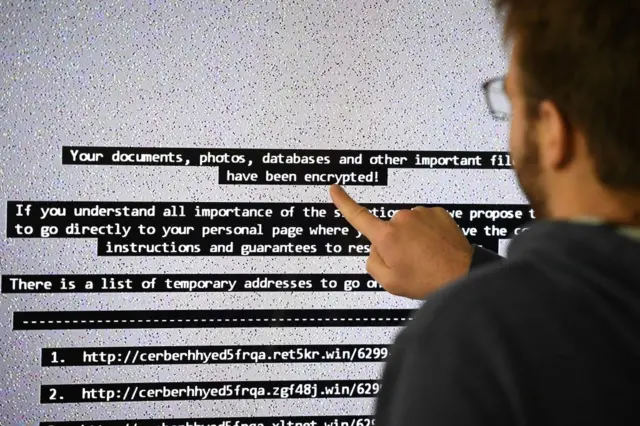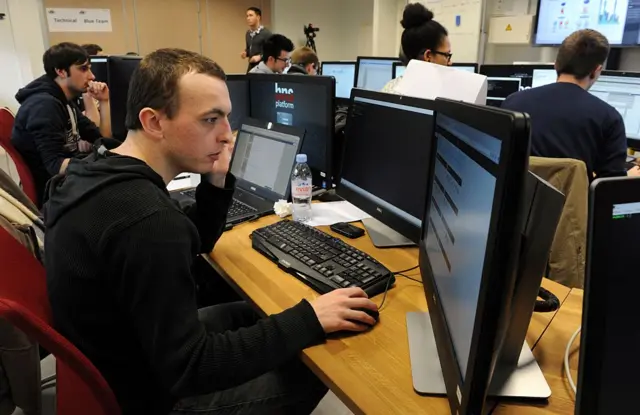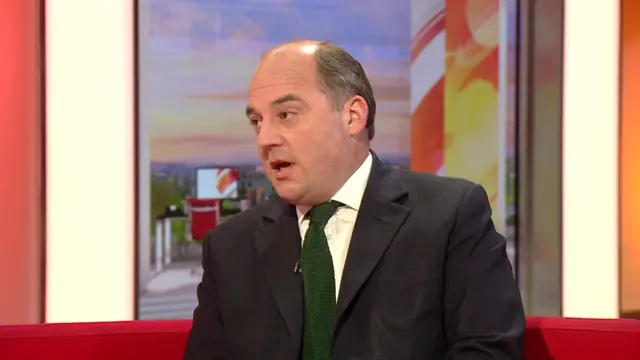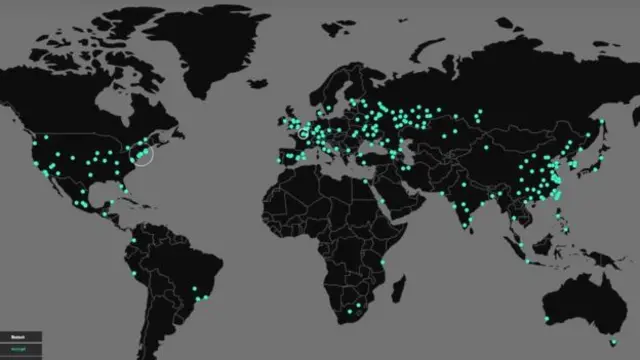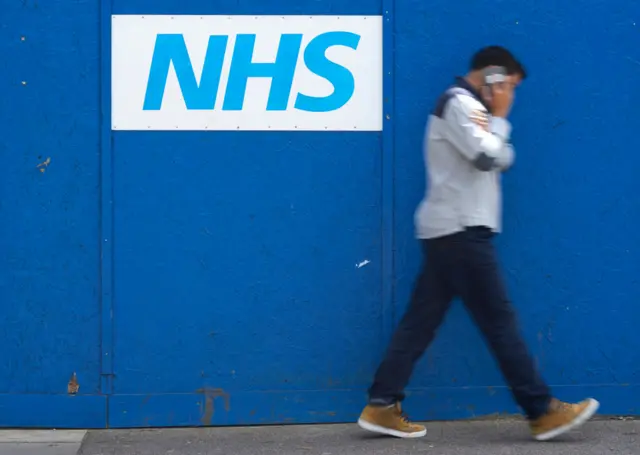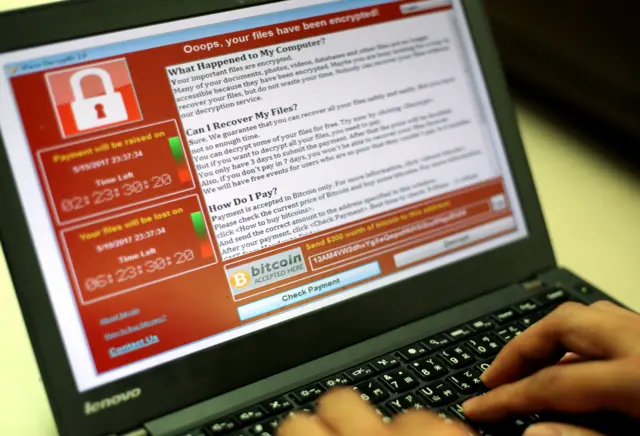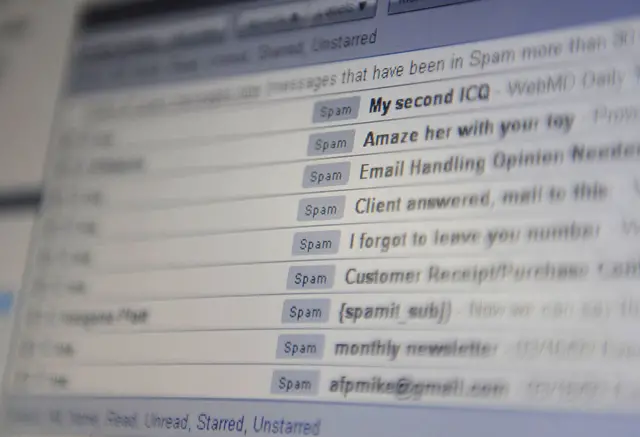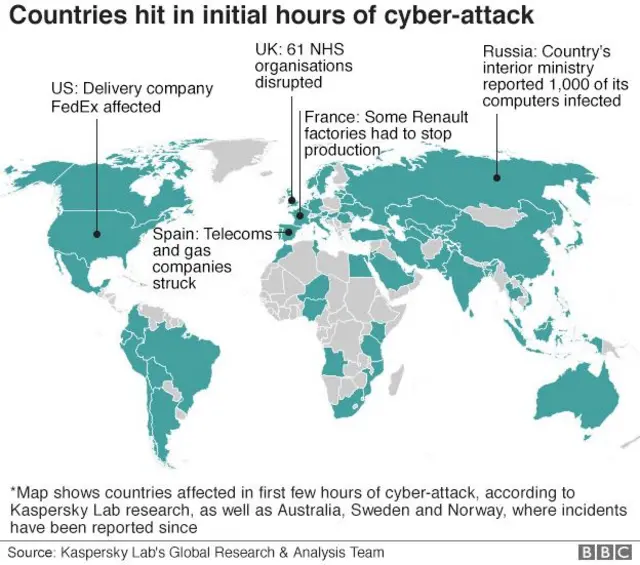Boris: 'Cyber-security a huge issue'published at 09:33 BST 15 May 2017
 Image source, Getty Images
Image source, Getty ImagesForeign secretary Boris Johnson has just arrived in Brussels for a meeting of EU foreign ministers.
And while today's meeting won't focus on the attacks, Mr Johnson says cyber security is "a huge issue".
"A huge amount of work goes on between the UK Government and all our friends and partners around Europe, and indeed in the United States, where they are now stepping up their precautions against cyber attacks of these kinds."


